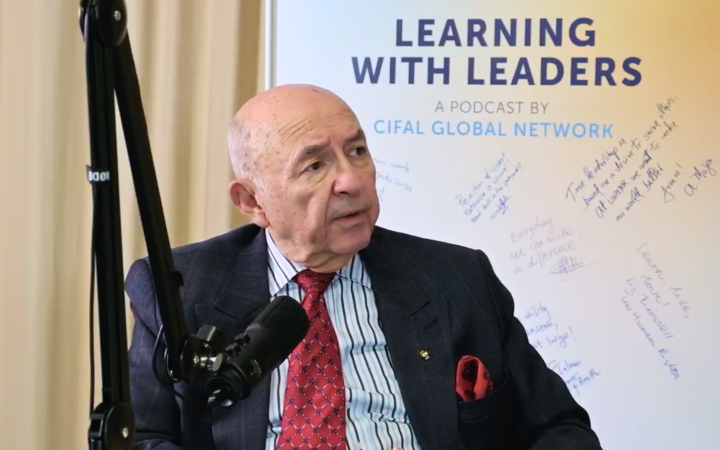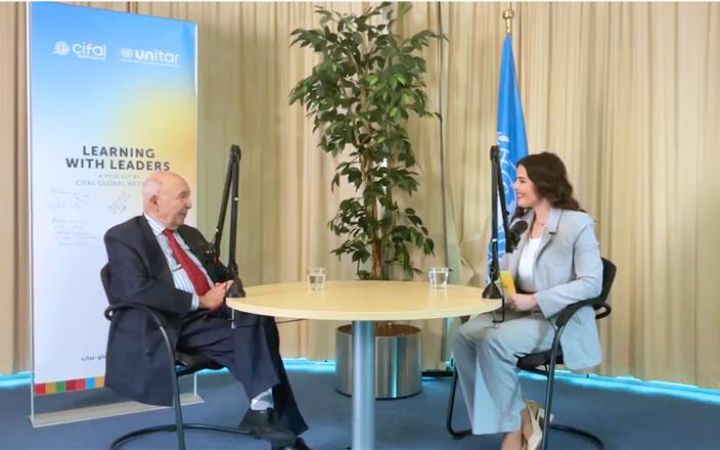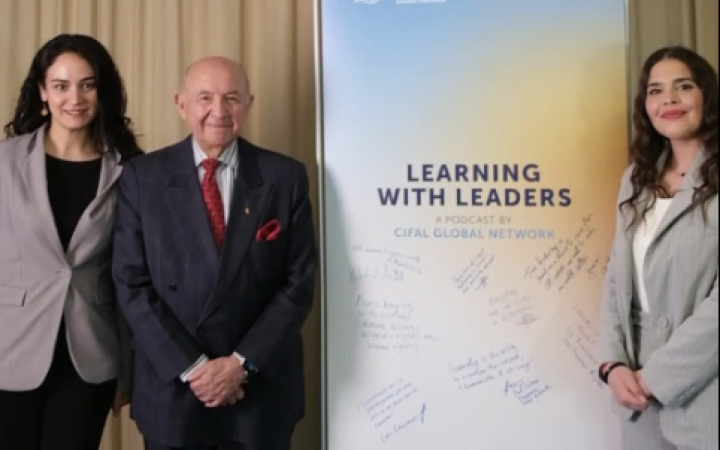4 November 2025, Geneva, Switzerland - What happens when machines are given the power to decide who lives and who dies? How do nations uphold human dignity in the aftermath of terror? And what does leadership look like when the world is paralysed by a pandemic?
These are some of the questions explored in the first-ever Spanish-language episode of the Learning with Leaders podcast, featuring His Excellency Ambassador Luis Gallegos, a seasoned Ecuadorian diplomat and one of the world’s most respected advocates for human rights and inclusion. Amb. Luis Gallegos is a distinguished diplomat who has represented Ecuador in several countries, including Australia, El Salvador, and the United States. He has also served as Ecuador’s Permanent Representative to the United Nations in both New York and Geneva.
Throughout his career, he has combined diplomatic skills with a strong commitment to justice. His work has focused on defending human rights, particularly for those who have historically been excluded, including women, children, indigenous peoples, and persons with disabilities.
Diplomacy, to me, has always been about giving a voice to those who have none,
he affirms. This conviction has guided his service throughout his career.
Human rights are not concessions. They are intrinsic to every person.
He adds that the defence of human rights is not a voluntary act, but an obligation and a responsibility that every human being must uphold.
Ethics, technology and global responsibility
Amb. Gallegos explained that he had the opportunity to serve as a member of the United Nations Committee against Torture and presided over the 2012 Conference on Disarmament. From this perspective, he discusses lethal autonomous weapons systems. He warns that when machines are programmed to decide who lives and who dies, humanity is crossing a moral frontier. He emphasises that human beings must remain at the centre of all decisions. He clarifies that the goal is not to halt progress, but to ensure that it follows an ethical path. Scientific and technological development, he says, should serve to improve living conditions and promote inclusion.
The development of science and technology must be directed towards improving the living conditions of people, especially persons with disabilities and older persons,
He stresses that technological progress should not leave anyone behind.
If it is guided by ethics, innovation can be a positive force, it can help people to communicate, to move, to work and to live with dignity. Technology must serve humanity, not replace it.
he says.
Championing inclusion
Amb. Gallegos is recognised globally as one of the foremost advocates for the rights of persons with disabilities and older people. He chaired the United Nations Ad Hoc Committee responsible for drafting the landmark Convention on the Rights of Persons with Disabilities (CRPD), one of the most significant international human rights treaties of the 21st century. Amb. Gallegos continues to advance this important legacy as President of the Global Initiative on Ageing (GIA Longevity), championing inclusion, equality, and dignity for persons with disabilities and older adults around the world.
Reflecting on the universality of disability, Amb. Gallegos observes that everyone, at some point in life, will experience a degree of limitation or dependency through ageing, illness, or accident. The rights he defends, he says, are also his own. A reminder that defending the rights of persons with disabilities is ultimately defending our shared future.
When asked about the essence of leadership, Amb. Gallegos offers a considered response. He further stated:
I do not know if there is a formula; I believe it is persistence, dedication, and clarity of thought. Leadership is a daily exercise of learning, empathy, and commitment.
His advice to future generations is clear.
Be informed, be compassionate, and remain firm in your principles. Leadership is not about power; it is about responsibility.
He concludes by recalling a principle shared by a close friend, a rabbi, which has shaped his view of life and service.
There is a rabbinical principle that says if you have helped to change even one life for the better, your life has been worth living.




